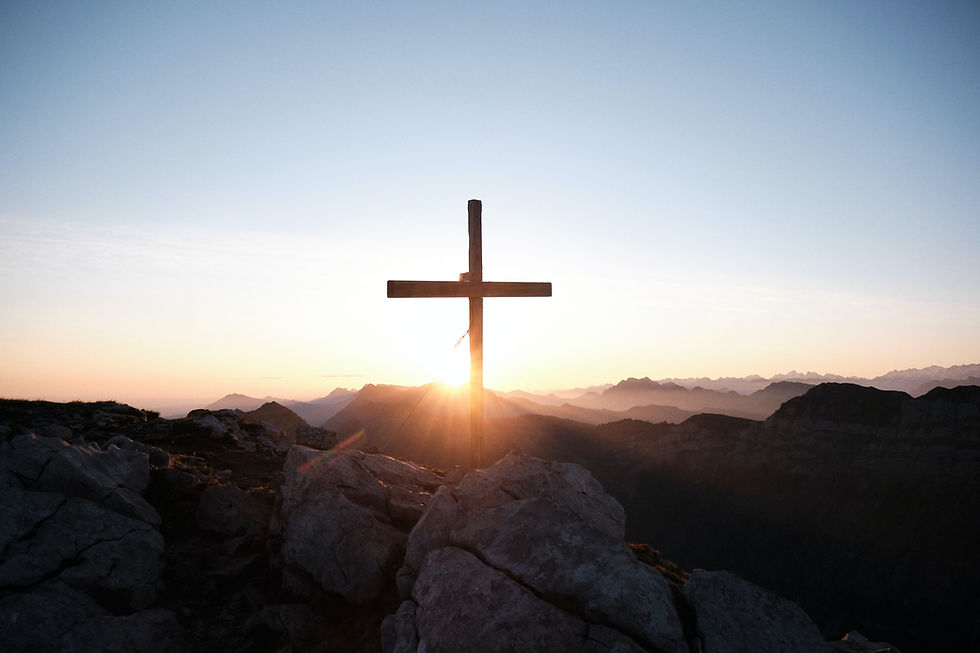On Good Friday we gather at the foot of the cross. It is a sad and confronting place to be. No matter how many times we come to this moment in the Easter journey it is for most of us quite overwhelming. The story of Jesus’ betrayal, arrest, trial and execution is physically and emotionally terrible. We feel the reverberations in our own bodies as we hear the harrowing story and we struggle to make sense. Anyone’s painful death is terrible. And the death of Jesus is even more difficult because we proclaim that it was salvific, that his suffering is our salvation. Jesus we believe died both as one of us and also for us. That is he died a fully human death. And he died for humanity.

Jesus was found to be blasphemous by the religious authorities of his day. And he was feared as an agitator and could-be insurrectionist by the Roman authorities. He died the sort of death reserved for radicals and for those who threatened the empire – death on a cross. Jesus died because of his passion for the kingdom of God and his passion that we should all know the liberating love of God in every aspect of our lives.
As human deaths go Jesus' death was terrible but tragically so are many others. He died young but not as young as some. He died wrongfully – he had committed no crime or sin – but wickedly so do many die for crimes they did not commit. His death from a human perspective was sad but not unique. What is unique is that God should ever have taken on human flesh and then to give the divine self over to the full human experience of life and death.
We who love Jesus as Lord must also confront again the horror and mystery that salvation somehow comes out of violent death. It is as St Paul said a stumbling block and a foolishness. We believe that Jesus died as one of us and for us. All those neat theologies and creeds seem to ring a little hollow in the face of such suffering and love. And so we come with our love, our misgivings, our fears for ourselves and our world and bring them to this place at the foot of the cross that we know is the great meeting place of all sorrow and sin, and the redemption of all that is broken.
So how does suffering bring about healing, how does death lead to life, and how does hate and fear become consumed by love?
Jesus died during the Passover. In Matthew, Mark and Luke the last meal Jesus ate was that of the Passover with his disciples. In John’s account Jesus died on the day of the preparation for Passover making it even clearer that he was the Pascal lamb himself. Passover was the festival of remembering that God delivered the people from oppression and slavery in Egypt and brought them to the promised land. On their last night in captivity the people of God were told to take a lamb and kill it. The flesh they were to consume entirely to strengthen them for the arduous journey to come. And the blood they were to daub on the door posts so that the angel of death, bringing the tenth and worst plague to Egypt, would pass over their households and they would be spared. And every year the people were to remember this great deliverance with a festival of unleavened bread, and lamb, and wine.
Jesus became for us the flesh and drink of this meal, a deepening and renewal of the covenant between the people and God, to deliver us from slavery into liberty, to have the angel of death pass over us.
The life and teachings and love of Jesus sustain us in our faith journey, informing, encouraging and challenging our lives with wisdom and compassion. And in death Jesus took into his own body all suffering, fear, sin, and death itself and laid it in the tomb. Because Jesus took into his own self all of what being human entails, including the worst of what it means to be human – broken, failed, death itself – there is now nothing that can separate us from the love of God. The powers of sin, violence, fear and death itself cannot oppress for ever, cannot prevent our ultimate liberation. For that ancient motif of God’s compassion for the chosen people and the call into the fullness of life in the promised land has been fulfilled in the life, death and resurrection of Jesus.
And this is good news, the very best news, as we kneel at the foot of the cross and consider our own dark spots on our soul, the suffering of so many folk we know, the desperate plight of so many people, when we think upon the degradation of God’s beautiful earth. The good news is that nothing is beyond the love of God, no experience places us outside the circle of God’s renewing power, nothing that oppresses us is beyond the liberating power of the love of God.
And so with somber but hopeful hearts we acknowledge the death of our Lord and wait for his resurrection. We lay in the tomb with him all our fears, hates, frailty and grief – all that we have finished with, all that is not of life and love – and trust that what we hand over to Jesus will be redeemed and healed.
Come, O Spirit of God, and make within us
your dwelling place and home.
May our darkness be dispelled by your light,
and our troubles calmed by your peace;
may all evil be redeemed by your love,
all pain transformed through the suffering of Christ,
and dying glorified by his risen life.
Amen

Kommentarer